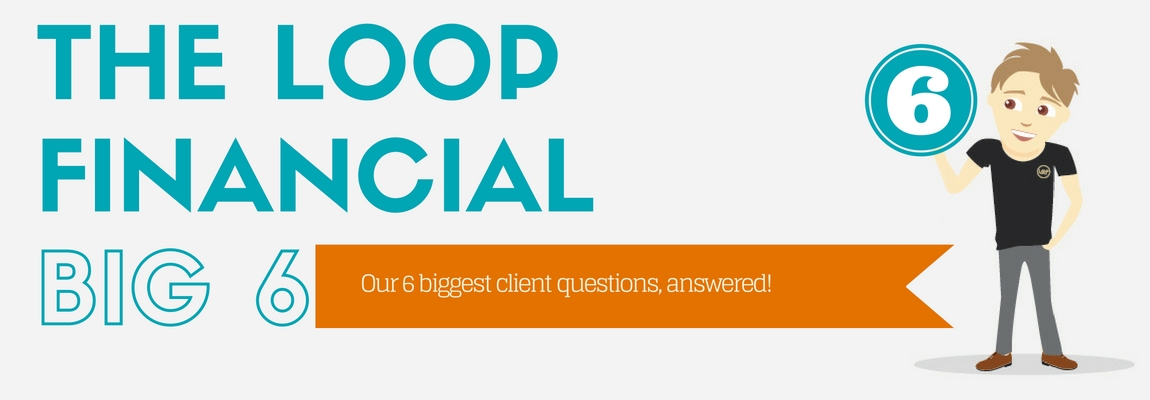Can you really buy a home or property with no deposit?
One of the Loop Financial Big 6 client questions, this time on buying a home with no deposit.
Making that first step onto the property ladder in today’s financial climate can be almost impossible, we get it. You’re earning a decent wage and trying your best to put some money aside each month but high rents are an absolute killer and it’s looking like you’ll hit retirement age before you have enough saved for a deposit.
So if this is the situation you find yourself in, what are your options? Is there any way to buy a home with no deposit?
 The good news is that there are ways to buy with no deposit, says Lauren Mamaj, Finance Strategist and Chief Number Cruncher at Loop, but that’s not to say it will be easy. Post-GFC, the banks are being a lot more cautious with their lending criteria.
The good news is that there are ways to buy with no deposit, says Lauren Mamaj, Finance Strategist and Chief Number Cruncher at Loop, but that’s not to say it will be easy. Post-GFC, the banks are being a lot more cautious with their lending criteria.
“There used to be products around for 110% finance where you could borrow 100% of the purchase price plus the cost for first time buyers, or basically with no deposit”, explains Lauren.
But these products are few and far between now, as a result of banks wanting to cut lending risk. “If you are looking to buy with no deposit, it obviously impacts what you can do but there are ways that you can potentially look at other options,” she adds.
Lauren cites an example where she helped a client obtain an unsecured personal loan of $50,000, which was then used to contribute towards the deposit for their purchase. Then when the property appreciated the following year, the client was able to increase the existing mortgage and pay back the personal loan. This was essentially done with no deposit.
And that’s just one option. With property prices continuing to rise, many people are looking to their parents to give them a hand up for that first-time purchase.
However, it’s not always as straightforward as the bank of Mum & Dad paying your deposit for you, or offering some kind of family financing. There’s this thing called a ‘genuine savings requirement’. Banks want to see your savings history as proof that you’re responsible with your money and will be able to afford the repayments, so $50,000 just appearing in your bank account one day will only go some of the way towards ticking all their boxes.
But we’ve already established that you haven’t been able to save much, are looking to move with no deposit, so what else can you do?
The specific requirements will vary from bank to bank (and thankfully Lauren and her team are pretty clued up on all the different options, so you don’t have to go trawling through endless pages of small print).
If you’ve been renting for a while then you may be in luck. “Obviously banks are aware that paying rent impacts what you can save and what you can consistently build as a deposit,” says Lauren. “The bank knows that once you move into a property, that rent money won’t be paid anymore and it would be going towards the mortgage instead.”
So in many cases, you can provide your bank with a rental ledger from your agent for the past 12 months as evidence that you have a consistent track record of paying rent on time.
But what if your parents don’t have a ton of spare cash lying around? Or they do but would much rather spend it on a round-the-world cruise?
Well, there are products called peer-to-peer or pledge loans that allow a third party (it could be your parents, an investor, or just a great mate) to use their equity to essentially top up your deposit while still protecting their security. They act as a guarantor on your property loan until you’re able to take it over in full.
This can be a good option for first-time buyers with no deposit, who have a sound financial history for financing for a property loan.
Once your property has appreciated in value or you have some savings in your pocket, you can apply to remove the third-party guarantee and security so the third-party equity is no longer linked to your property loan.
The process for this again varies from one bank to another, and is subject to the bank’s valuation on your property.
“What would normally happen is if the parents or third party want to remove the guarantee, they’ll submit an application or a request to the bank to value the existing security that will remain and ascertain its value,” Lauren explains.
If your property has increased in value and can now absorb all of the equity that was offered by the guarantee, then the bank is more likely to release it. The key is that you’re not asking for any additional money on your mortgage; just moving the debt around.
Lauren offers this example: “If the bank originally approved your property loan at 80% and your total loan is $400,000, that means that to be able to absorb the additional 20% your property value will need to be at least $500,000.”
That’s quite a considerable appreciation, so the money can also be topped up by savings or an additional loan. That’s winning with no deposit!
Whatever your situation, Lauren’s friendly and informed team at Loop can talk you through your options based on your personal situation and they’ll do whatever they can to find a mortgage or finance choice that works for you.
Disclaimer *Your full financial situation would need to be reviewed prior to acceptance of any offer or product.
Credit Representative Number 482730 is authorised under Australian Credit Licence Number 389328.

